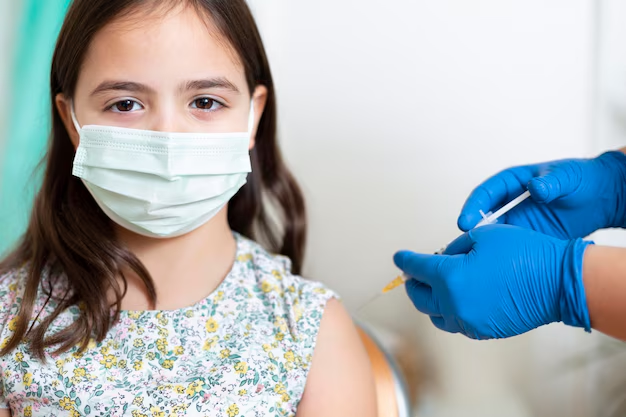When Should You Get the Measles, Mumps, and Rubella Vaccine? Here's What to Know
In the dynamic world of healthcare, vaccines have paved the way for safe, healthy communities by preventing outbreaks of infectious diseases. Among the critical vaccines is the Measles, Mumps, and Rubella (MMR) vaccine, a trio that guards against three contagious diseases which can have serious consequences. If you're wondering about when and why you should get this vaccine, you're not alone. Here, we delve into everything you need to know about the MMR vaccine, including the recommended schedule, its importance, and the broader implications for community health.
Why Is the MMR Vaccine Important?
Measles, mumps, and rubella are not just mild childhood illnesses; they can lead to severe health complications.
- Measles can result in serious issues like pneumonia, encephalitis, and even death.
- Mumps isn't just about swollen glands; it can lead to meningitis, orchitis (inflammation of the testicles), or oophoritis (inflammation of the ovaries).
- Rubella, although generally milder, poses severe risks if contracted during pregnancy, potentially resulting in congenital rubella syndrome, which can cause severe birth defects.
Given these risks, the MMR vaccine is a crucial tool in preventing outbreaks and keeping communities healthy.
Recommended MMR Vaccine Schedule
Childhood Vaccination
The Centers for Disease Control and Prevention (CDC) provides clear guidelines for the administration of the MMR vaccine:
First Dose: It's recommended to administer the first dose of MMR vaccine to children between 12 to 15 months of age. This schedule allows the child's immune system to develop adequately to handle the vaccine, ensuring robust immunity.
Second Dose: The second dose is administered at 4 to 6 years of age, usually when children are about to begin school. This booster dose ensures continued immunity and optimal disease protection.
Catch-Up and Adult Vaccinations
For those who missed their vaccinations during childhood, it's never too late:
- Children and Teenagers: If they did not receive the vaccine on the recommended schedule, catch-up vaccination is advised.
- Adults: Adults who haven't been vaccinated or lack immunity should get at least one dose unless contraindicated.
People who are at higher risk—such as international travelers, healthcare workers, and those in outbreak situations—may require additional doses to bolster immunity.
Understanding Immunity and Effectiveness
How Does the MMR Vaccine Work?
The MMR vaccine contains live attenuated viruses, which means they are weakened but effective at provoking an immune response. When administered, your body 'learns' to fight these viruses without the risk of severe disease, creating antibodies to protect you against future exposures.
Effectiveness
The MMR vaccine is highly effective:
- Measles: Approximately 93% effective for the first dose and 97% after two doses.
- Mumps and Rubella: Both show high levels of efficacy after two doses, significantly reducing the risk and spread of these diseases in vaccinated individuals.
This efficacy not only helps protect vaccinated individuals but also contributes to the broader community immunity, protecting those who can't be vaccinated, such as infants and immunocompromised persons.
Considerations and Precautions
Before getting the MMR vaccine, here are several factors to consider:
Contraindications
Certain individuals should not receive the MMR vaccine:
- Pregnant Women: It is generally advised to wait until after delivery.
- Severely Immunocompromised Individuals: Those undergoing cancer treatment or living with HIV/AIDS should consult their healthcare providers.
- History of Severe Allergic Reactions: If you've experienced severe allergic reactions to any of the vaccine's components, discuss alternative options with your healthcare provider.
Potential Side Effects
Like any medical intervention, the MMR vaccine may cause side effects—though mostly mild. Common side effects include fever, mild rash, or temporarily swollen glands. Rare complications can include febrile seizures or transient joint pain, mainly in adult women. Importantly, these risks are minimal compared to the complications of the diseases themselves.
Broader Implications: Community Health and Herd Immunity
One of the greatest benefits of vaccination is herd immunity. This term describes indirect protection from infectious diseases that occurs when a significant portion of a population becomes immune, reducing the likelihood of disease spread. This is crucial in protecting individuals who cannot receive vaccines, such as infants or those with certain medical conditions.
Outbreaks and Vaccine Hesitancy
Despite the proven safety and efficacy of the MMR vaccine, vaccine hesitancy remains a challenge. Some communities have seen a resurgence of measles and other preventable diseases due to declining vaccination rates. Thus, informed decision-making and public health education are vital in combating misinformation and ensuring widespread vaccine coverage.
Boosting Global Efforts
Global Health and Vaccination Goals
The World Health Organization (WHO) and other global health entities emphasize the need for broader vaccination campaigns, especially in low- and middle-income countries where access to vaccines can be limited. Achieving high global vaccination rates is key to eradicating these diseases worldwide.
Advances in Vaccination
Research is ongoing to improve upon existing vaccines and develop new ones. The focus is not only on better efficacy but also on enhanced delivery systems that may simplify vaccination logistics and accessibility.
Ensuring a Healthier Future
Understanding when and why to get the MMR vaccine is a small yet vital part of larger public health efforts. Vaccination is more than just a personal health choice; it's a communal responsibility. By adhering to recommended vaccination schedules and supporting public health initiatives, you contribute to a safer and healthier future for all.
Quick Reference: MMR Vaccine Essentials
- 👶 First Dose: 12-15 months old
- 👦 Second Dose: 4-6 years old
- 🕒 Catch-Up: For anyone who missed the initial schedule
- 👥 High-Risk Individuals: May need additional doses
- 💉 Immunity: Highly effective, especially with two doses
- 🌍 Community Impact: Vital for herd immunity and global health protection
Understanding these points equips you with the knowledge to make informed decisions about vaccinations and their essential role in public health. Always consult with healthcare professionals for personalized medical advice.

